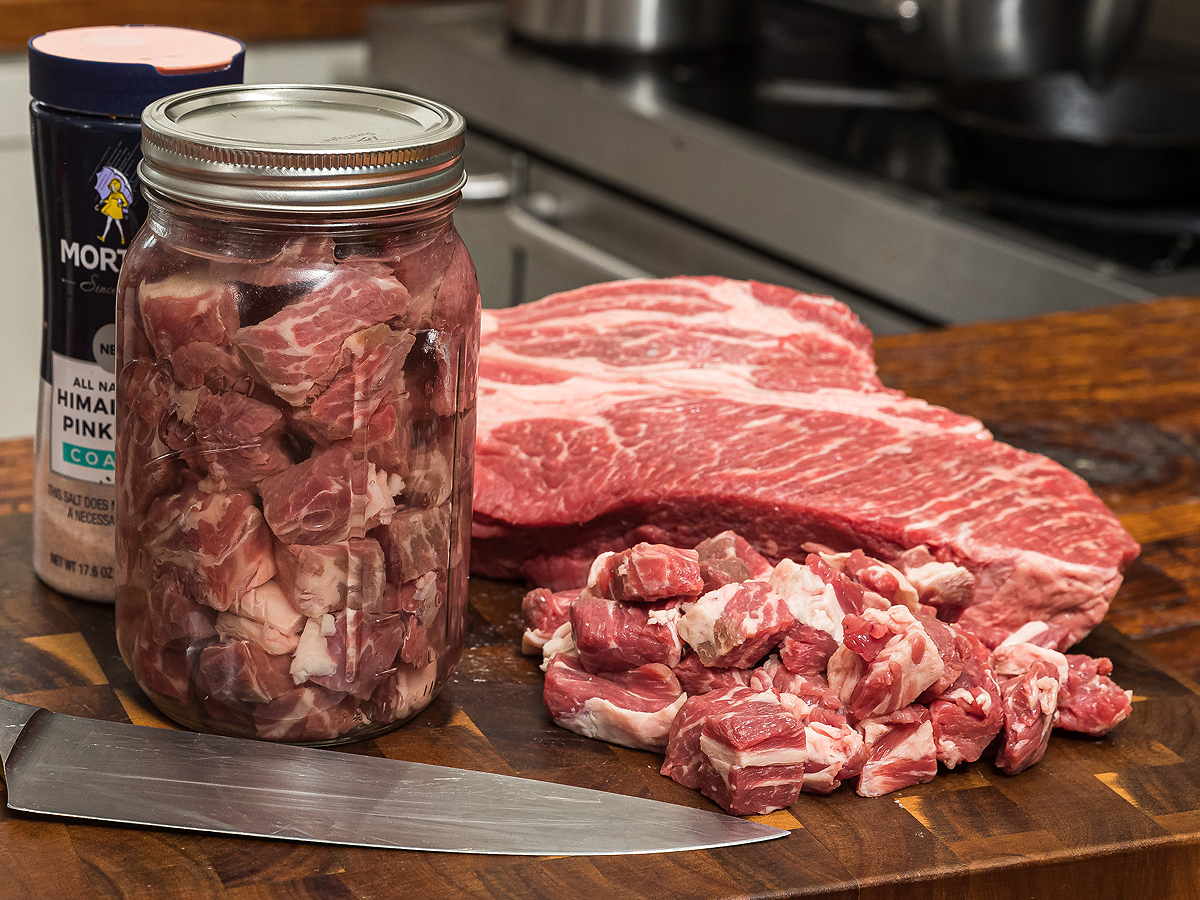
Canning Stew Meat
When it comes to canning, meat isn’t always the first thing that comes to mind. Especially when it’s uncooked. But thanks to some safety tips from the extension services at both Oregon State University and Washington State University, canning meat for fall and winter stews is quick and easy. We have some tips and insights to get you started.
Play it Safe
Oregon State University Extension Service and Washington State University Extension Service have a long list of canning recipes and advice to get your canning done safely. Have questions? Call OSU’s food safety and preservation hotline, open through October at 1-800-354-7319.
IMPORTANT: Remember, red meats are low-acid foods, which means they must be processed in a pressure caner to be safely eaten later. Botulism poisoning can occur if proper processing does not occur. We’re following guidelines in the publication Canning Meat, Poultry, and Game from Washington State University Extension Service in conjunction with Oregon State University Extension Service and the University of Idaho.
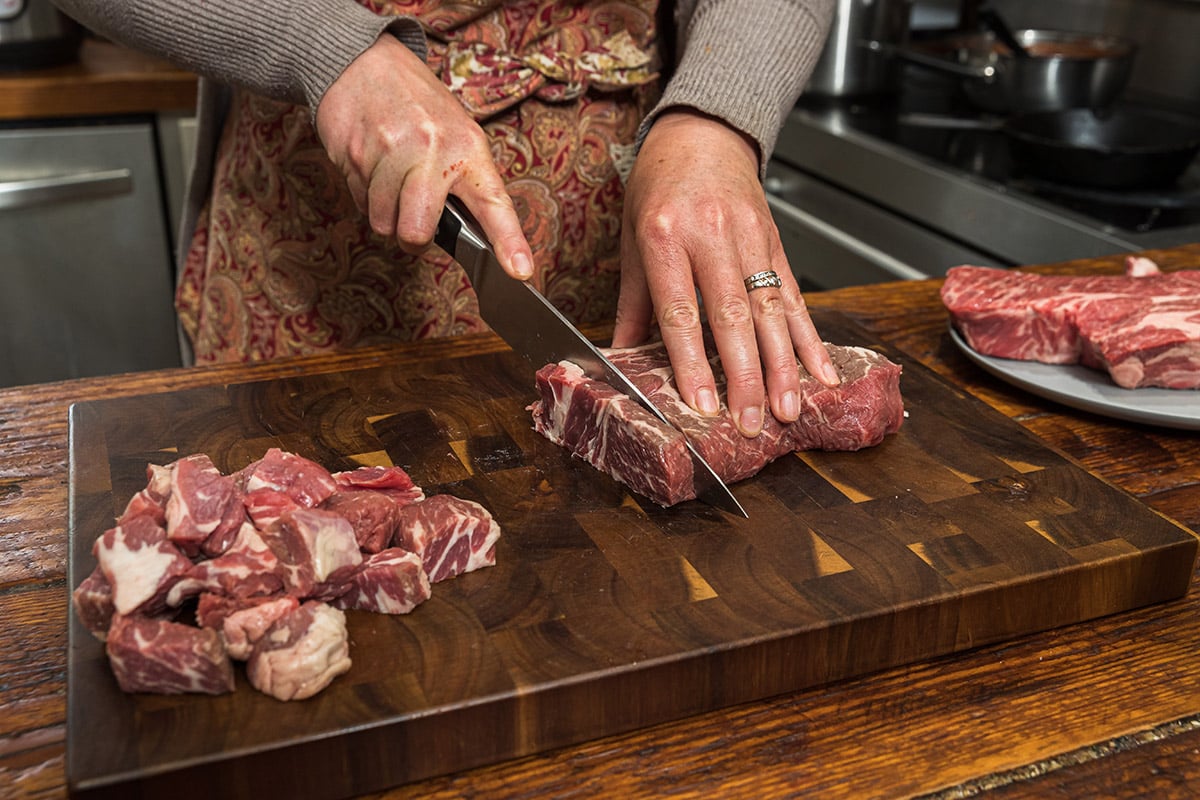
Step 2: Cut away the extra fat. This will save you time later.
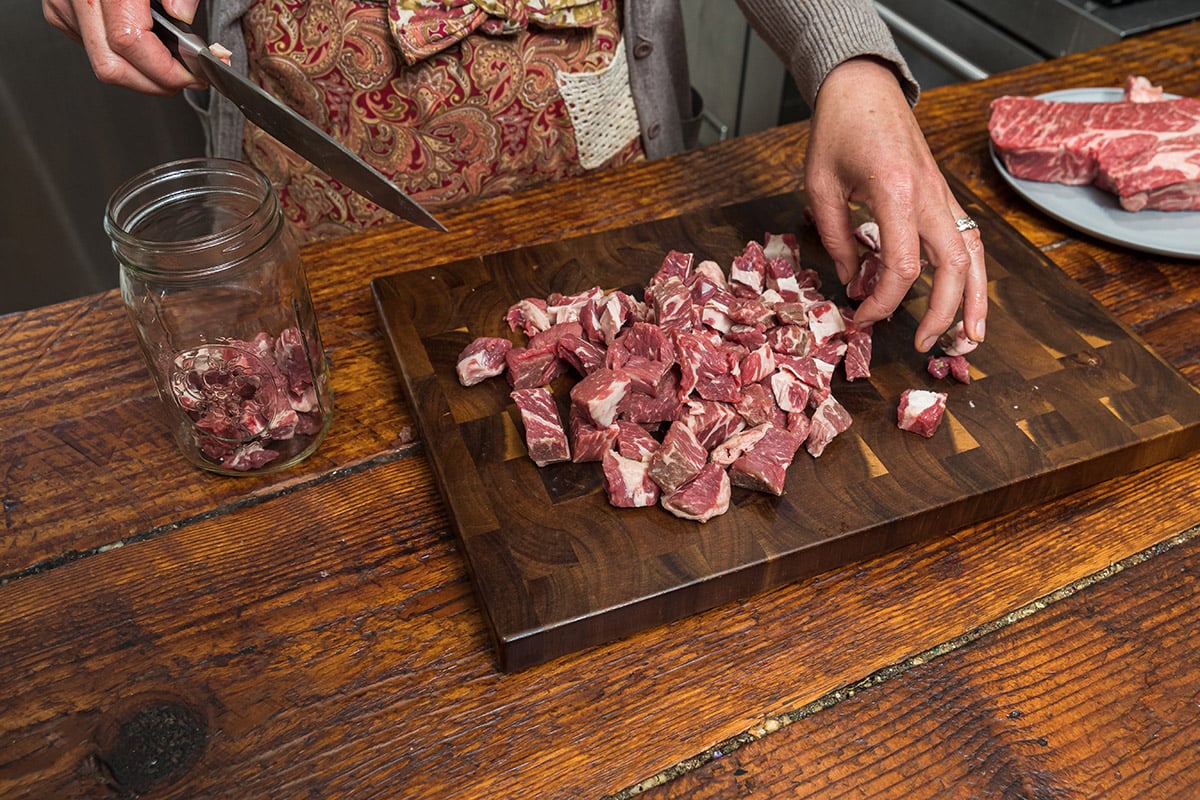
Step 3: Cut the meat into small chunks. This will help it fit into your jars a bit easier.
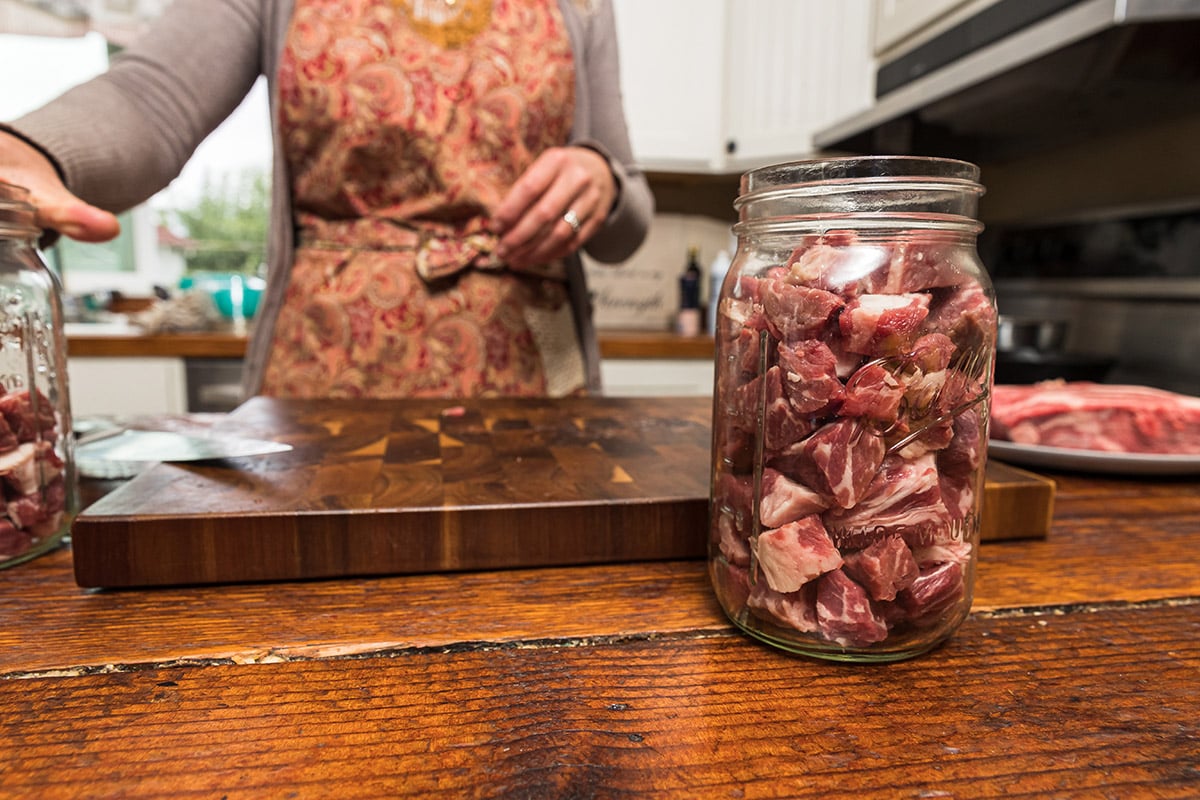
Step 4: Fill each jar. Leave an inch of headspace. Don’t pack it down as over-packed jars don’t heat as evenly.
Step 5: Add water to each jar. You want the water to just cover the top of the meat. Then remove the air bubbles by using a flat, plastic knife between the food and the jar and moving the knife around the inside of the jar. Adding salt isn’t necessary, but does add to the flavor later.
Step 6: Carefully wipe the rims. Use a damp, clean paper towel. Then apply your lid, and follow the directions from the manufacturer of your pressure canner.
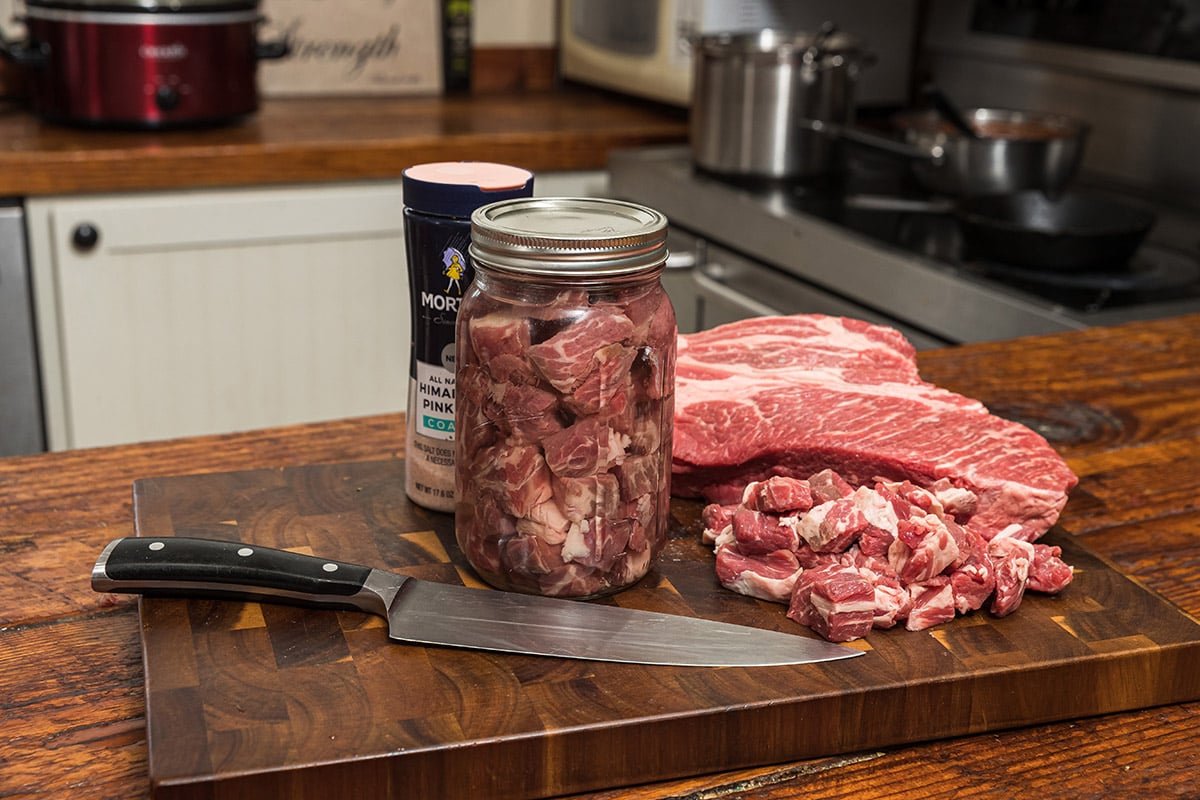
When you’re ready to use your canned meat, add a full jar to a crockpot along with all your favorite veggies.
Meat Canning Safety Checklist
Anytime you’re canning meat, the folks with Washington State University Extension Service have some tips to help keep you and your family safe.
- Use high-quality meat.
- Use a pressure canner. Boiling water canners and steam canners may not produce high enough temperatures.
- Increase pressure at higher altitudes.
Coastal Has Your Canning Supplies
You’ll find folks who know a thing or two about canning, along with all the supplies you need at your Northwest owned and operated Coastal. While you’re at the store, check out our aisles of petfood and footwear, country clothing, workwear, as well as fencing and sporting goods.
